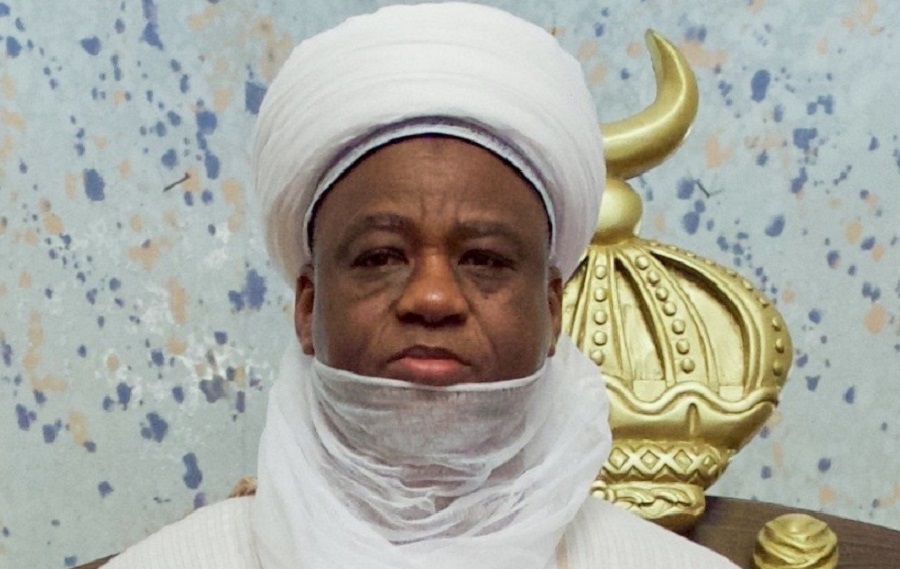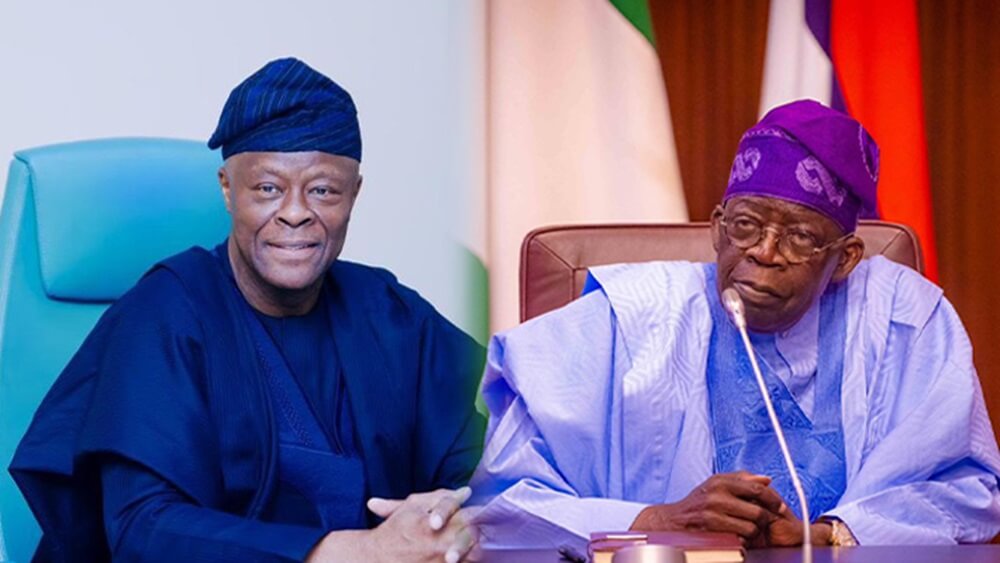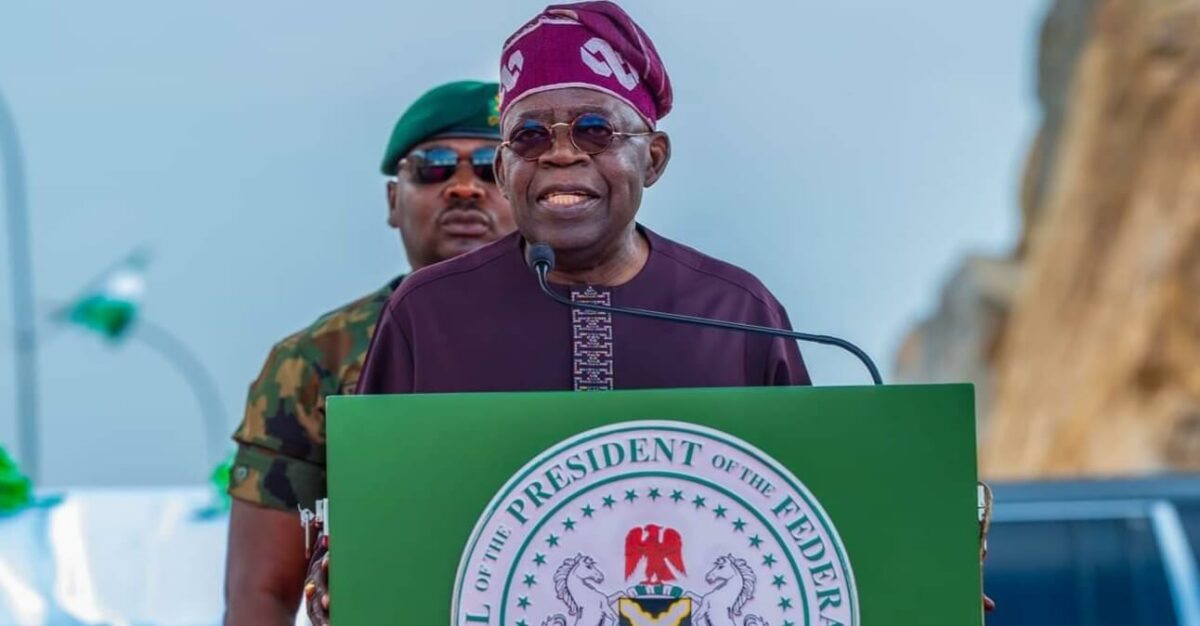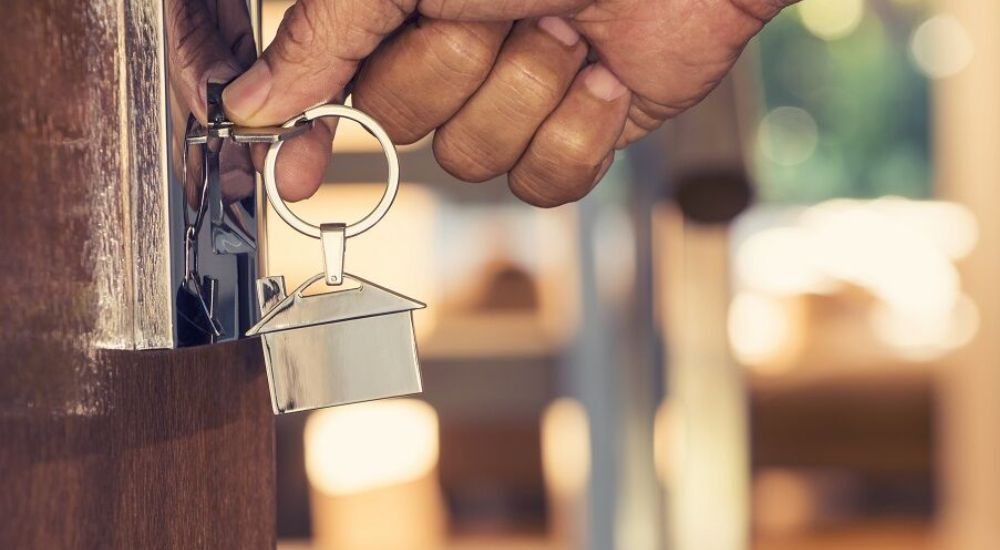Tinubu’s Sports Agenda: Big Promises, Mixed Performance After Two Years

It has been two years since President Bola Ahmed Tinubu assumed office and it has not been a smooth sailing ride for his administration in the sports sector.
Tinubu named Senator John Enoh as the Minister of Sports on August 16 2023, and he was saddled with the responsibility of leading the sector to greater heights through the renewed hope agenda for the Sports sector.
A few weeks later, the Minister unveiled a six-point agenda titled ‘W.A.I.F.A.R’ to drive Nigeria’s sports development.
The agenda which was expected to be a foundation upon which a strong sports development plan will be built on.
The Agenda is explained below focused on Welfare, Activation, Infrastructure Development, Funding and Reorganisation.
The Ministry of Sports implemented policies aimed at providing stable and consistent support for athletes and sports federations.
This includes financial backing, infrastructure development, and international exposure. The strategic focus on stability and which allowed athletes to train and compete with the confidence that they have the support of the government.
Enoh activated and enabled a welfare system that caters for serving and retired athletes, as well as an annual recognition platform.
Tinubu graciously cleared all the debts accumulated by the former administration in the funding of football, in excess of N12bn.
The money was transferred straight into the coffers of the Nigerian Football Federation, as the minister’s first motivation in politics has never been greed. The figures have climbed to about N17bn as the welfare of athletes has received more attention under the renewed Hope agenda of Tinubu.
Through partnerships with the private sector, the ministry relaunched the Challenge Cup and renamed it as the President Federation Cup in collaboration with the NFF to reignite interest amongst fans and elevate it to global standards.
The renamed competition involved grassroots teams, created employment for approximately 500,000 Nigerians, engaged over 100,000,000 football enthusiasts, and showcase our country’s greatness globally.
However, in the last two years, Nigeria has endured a mixed outing in sports especially at the 2024; Olympics, where the country failed to win a single medal despite an investment of approximately N12bn and a contingent of 86 athletes.
But later in the year, Nigeria recorded an impressive outing in Handball with the men’s handball team winning the President Cup at the Africa Men’s Handball Nations Cup in Egypt and followed it up with a bronze medal at the All Africa Games in Ghana, a feat Nigeria last achieved two decades earlier.
Similarly, the under-18 women’s handball team qualified for the world championship when also winning gold medals at the IHF Women’s Trophy Zone 3 in Ghana.
The under-18 men’s handball team also produced an exceptional performance, winning the IHF Men’s Trophy Africa Zone 3 in Ghana and emerging victorious at the continental phase in Ethiopia.
Nigeria participated in 25 sports at the All African Games in Ghana.
Team Nigeria had an outstanding performance, finishing second. In all, Nigeria won a total number of 121 medals comprising 47 gold medals, 33 silver and 41 bronze medals.
Team Nigeria won the overall best team in athletics with 11 gold medals, six silver medals and four bronze medals with Chinecherem Nnamdi setting a new world record in the javelin event at the games with a throw of 82.80 metres.
The Senior Women’s National team of Nigeria, the Super Falcons, were named the Team of the Year in Africa at the 2023 CAF Awards.
The team also achieved a top 10 placement globally at the end of the FIFA Women’s World Cup in Australia and New Zealand.
Nigeria’s Chiamaka Nnadozie was named the first-ever African Goalkeeper of the Year at the 2023 CAF Awards. Elizabeth Oshoba became the first Nigerian female boxer to win a world title.
Team Nigeria emerged as the overall best in boxing with a total of eight gold medals and two silver medals.
In Cricket, the female national team made history by becoming the only Nigerian team to win medal at the African Games in Ghana.
Similarly, the U19 women’s cricket team became the only African team to qualify for the World Cup in Malaysia.
Nigeria also emerged champions of the 2024 African U19 Girls Beach Volleyball Nations Championship in Morocco.
In Boxing, Esther Osoba became Nigeria’s first female boxer to win a world title by winning the World Boxing Council (WBC) silver featherweight championship in Copenhagen.
In 2025, Tinubu administration started well on an administrative note by reinstating the National Sports Commission (NSC) after its dissolution in 2015.
The move was targeted at shielding sports administration from bureaucratic bottlenecks and vested interests, granting it autonomy to focus on innovation and development.
The NSC’s revival underscores the administration’s commitment to positioning sports as a vital tool for national unity and youth engagement.
The National Sports Commission (NSC) was Nigeria’s top regulatory body for sports, responsible for overseeing the development and promotion of sports nationwide before it was dissolved in 2015 by the administration of former President Muhammadu Buhari.
The NSC was formally created in 1962 as a parastatal under the Federal Ministry of Labour and later reconstituted as the National Sports Commission through Decree 34 of 1971 by the Federal Military Government.
President Tinubu approved a 300 per cent increase in the sports budget for the 2025 fiscal year. This substantial financial commitment was aimed at bolstering athlete preparation, upgrade facilities, and support national teams across various disciplines.
In April, Tinubu signed the Anti-doping bill into law.
The bill, which has been in the works for close to two decades, into law reinforced President Tinubu’s intentional and deliberate resolve to ensure that the nation aligns with global anti-doping standards and overall sports development.
The Act domesticates the International Convention Against Doping in Sport and establishes an independent body charged with the responsibility for the implementation of the World Anti-Doping Code and International Standards subscribed to by Nigeria.
Most importantly, this Act establishes the Nigeria Anti-doping Center.
The National Anti-doping Act 2025 will allow the National Anti-Doping Organization (NADO) to coordinate all anti-doping strategies in compliance with the provisions of the World Anti-Doping Code (WADC).
Under Tinubu’s tenure, the NPFL has witnessed significant progres which includes:
Increased Prize Money: The league’s prize money saw a substantial boost, enhancing competitiveness among clubs. The winner now goes home with a princely sum of 200 million naira.
Broadcasting Deals: Partnerships with media firms have improved the league’s visibility, attracting a broader audience and increasing revenue streams.
Technological Integration: The adoption of artificial intelligence for match coverage has modernized the viewing experience, aligning the NPFL with global best practices .
In the area of grassroot development, Tinubu’s administration has emphasized grassroots development, recognizing its importance in nurturing future sports talents.
Initiatives have included the establishment of community sports programs and support for local competitions, fostering a culture of sports participation from an early age.
The administration launched the Invited Junior Athletes initiative which enables young athletes to participate in major tournaments like the ongoing National Sports Festival to enable them hone their skills on a bigger stage.
The IJA initiative introduced the festival as the 38th State, and the early performance of the junior athletes during the Games is already justifying the essence of the concept.
The NSC introduced the invited junior athletes concept so that Nigeria can start having a unique and scientific transition system between the upcoming junior athletes and the elite athletes.
Thirty-eight junior athletes across different sports are representing the Invited Junior Athletes, IJA, at the Gateway Games.
The IJA have won a total of 15 medals at the 2024 National Sports Festival in Abeokuta.
Meanwhile, Sports Journalist, Femi Fabunmi praised Tinubu’s administration for reviving the National Sports Commission.
He said: “President Tinubu has done well in sports since his inception as the number one citizen of Nigeria.
“The Creation of National Sports Commission is a testament to that under his watch the Super Eagles Coach problem was solved. Now we have prompt payment of bonuses and allowances. All these have reflected in the attitude of even Super Eagles Players and other national team players. So on the scale of 1 -10 I will score President Tinubu 7”
Football fan, Olaolu Aderibigbe, was critical of Tinubu’s performance urging his administration to focus on developing all sports and not only football.
He said, “I will score Tinubu’s administration below 50 simply because of their preference for football, I want the administration to also focus on other sports to ensure they develop like football.”
“I want them to focus on developing the major sports that we have chances of winning medals, at the last Olympics we didn’t do well, I believe they should start preparations now. Nigeria is too big not to win medals at the Olympics.”
Tinubu’s Sports Agenda: Big Promises, Mixed Performance After Two Years is first published on The Whistler Newspaper





